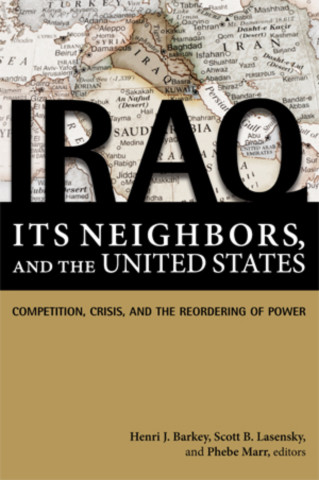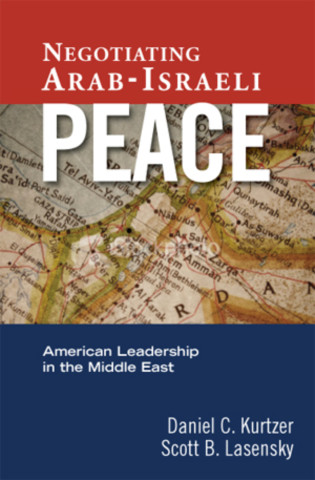Scott B. Lasensky
Scott B. Lasensky served as the Senior Advisor to the United States Ambassador to Israel Daniel Shapiro (2014-2017). While serving in Israel in this White House appointed position, he was deeply involved in every aspect of the bilateral relationship, with an emphasis on policy advising and public engagement. Dr. Lasensky also played a leadership role in deepening and expanding ties with American Jewry. From 2011-2014, he was a Senior Policy Advisor to U.S. Ambassadors to the United Nations Susan E. Rice and Samantha J. Power, focusing on Israel, the Palestinians, Syria, and Jewish affairs. In that position, he was deeply involved in the inter-agency policy process, including regular participation in Deputies Committee meetings. For both Rice and Power, he was the principal liaison to the Jewish community. As part of USUN’s Washington-based Cabinet office, he also advised on a wide range of issues related to the principal bodies of the United Nations system, including the Office of the Secretary General, the Security Council and the General Assembly. Dr. Lasensky’s most recent book is The Peace Puzzle: America’s Quest for Arab Israeli Peace (Cornell University Press, 2013). His 2008 book, Negotiating Arab-Israeli Peace: American Leadership in the Middle East (co-authored with Ambassador Daniel Kurtzer), was widely reviewed and cited, and was also a USIP Press bestseller. Dr. Lasensky has lectured and written extensively on Israel, the Arab-Israeli conflict and America’s role in the Middle East, and has held a variety of positions at leading American think tanks, including the U.S. Institute of Peace (2004-2011), the Council on Foreign Relations (2000-2003), and the Brookings Institution (1999-2000). At USIP, he co-directed the Study Group on Arab-Israeli Peacemaking with Ambassador Kurtzer; initiated and directed “Madrid 20,” a major 2011 conference marking 20 years of US-led peacemaking efforts; designed and led a number of Track II dialogue programs involving Iraqis, Syrians, Turks and Israelis; and served as Senior Advisor to a blue-ribbon panel on Arab-Israeli peacemaking co-chaired by former National Security Advisors Sandy Berger and Stephen Hadley (2009-2011). Lasensky was part of the U.S. delegation to the UN-sponsored Syria peace talks in Geneva in 2014. He served as an International Election Monitor with the National Democratic Institute and the Carter Center for Palestinian elections in 2005 and 2006. At the CFR, Lasensky served as assistant director of the U.S./Middle East Project and its Independent Task Force on Strengthening Palestinian Public Institutions. Lasensky has been a visiting and adjunct professor at Georgetown University, the University of Maryland, and Mount Holyoke College. He has been a frequent commentator on NPR, CNN, Fox News, and other major media outlets. He received a special mention in Foreign Policy magazine’s list of top American think tanks. From 1997-2004, he worked part-time as a writer for the World Economic Forum. A recipient of the Yitzhak Rabin-Shimon Peres Peace Award from Tel Aviv University (1999, Ph.D. category), Lasensky is a graduate of UCLA and earned his Ph.D. in international relations from Brandeis University. He speaks Hebrew.
Author's Books
Foreword by James A. Baker, III and Lee H. Hamilton
Iraq, Its Neighbors, and the United States examines how Iraq's evolving political order affects its complex relationships with its neighbors and the United States. The book depicts a region unbalanced, shaped by new and old tensions, struggling with a classic collective action dilemma, and anxious about Iraq's political future, as well as America's role in the region, all of which suggest trouble ahead absent concerted efforts to promote regional cooperation. In the volume's case studies, acclaimed scholars and experts review Iraq's bilateral relationships with Turkey, Iran, Saudi Arabia, the Gulf Arab States, Syria, and Jordan and explore how Iraq's neighbors could advance the country's transition to security and stability.
Negotiating Arab-Israeli Peace sets forth a compelling, interests-based framework for American engagement in the peace process; provides a critical assessment of U.S. diplomacy since the end of the Cold War; and offers a set of ten core “lessons” to guide the efforts of future American negotiators.


